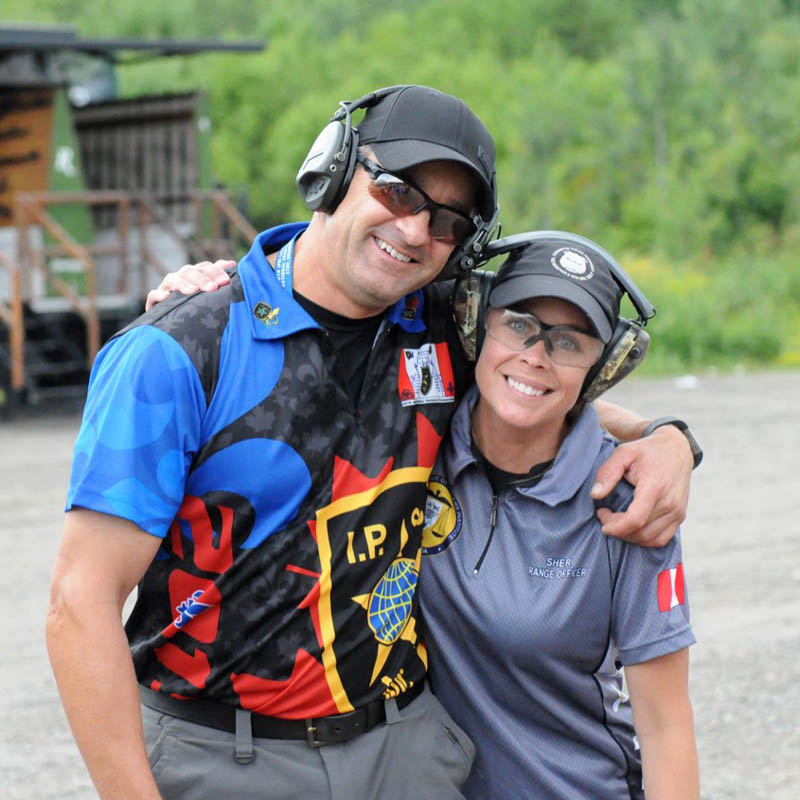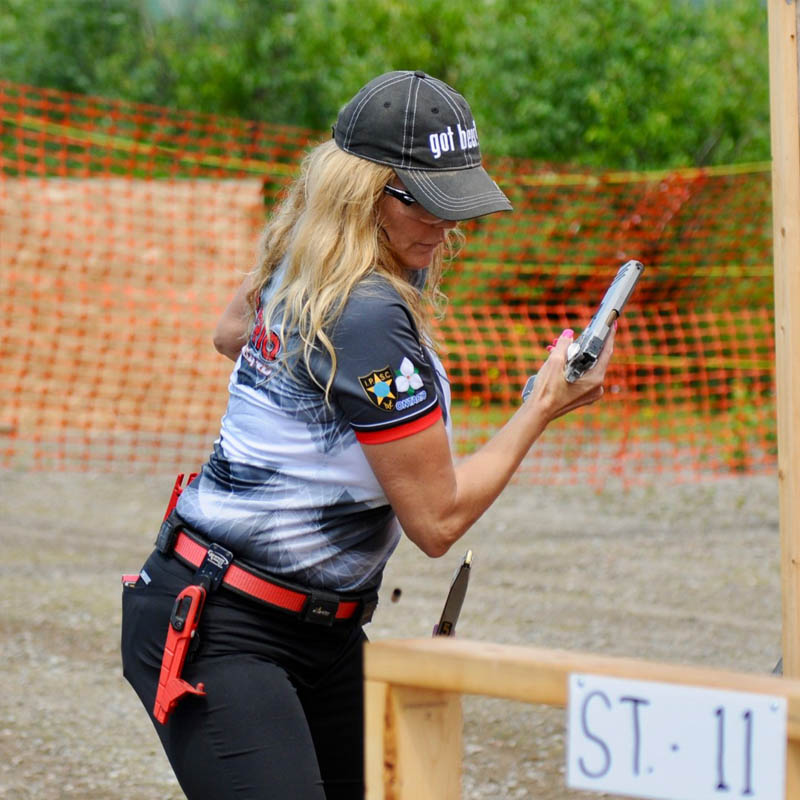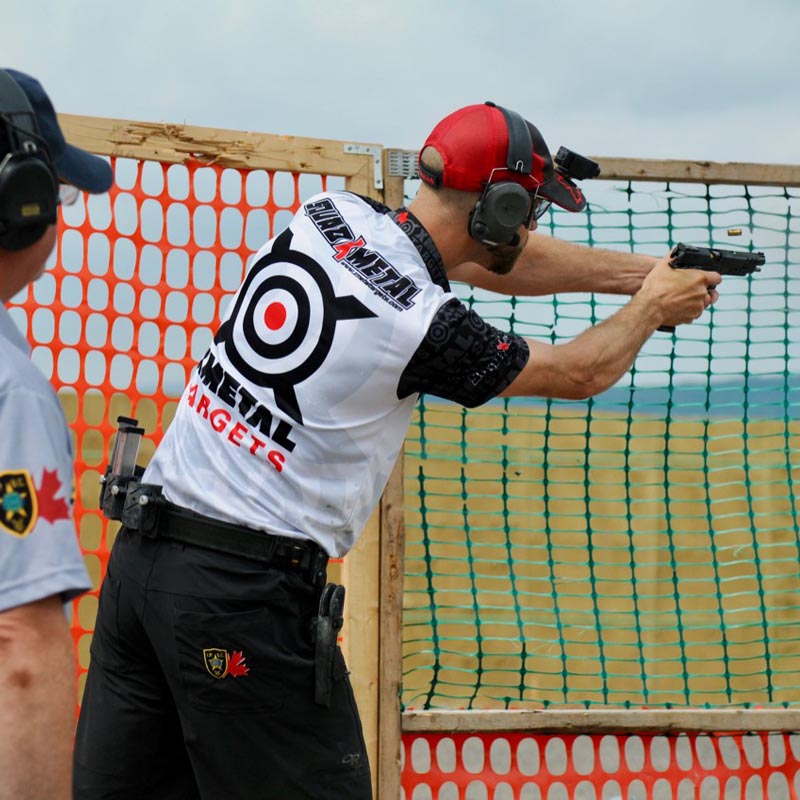History
May 1976
The International Practical Shooting Confederation, (IPSC), was officially formed at the Columbia International Combat Pistol Conference in Columbia Missouri in May of 1976. Jeff Cooper, who was the Chairman of the Conference, was appointed the first acting World President.
Practical Pistol competitions started in California in the 1950s. This style of advanced Combat Shooting spread over the years to Australia, Central America, Europe, and South Africa. Organized competition was deemed necessary as no existing competition used pistols in a practical manner.
Forty people from around the world were invited to the conference to determine the nature of the sport. IPSC was devised to determine the competitor’s ability to use a pistol for its primary intended purpose, self-defense.
Promoting accuracy, power, and speed in the safe use of a firearm was the prime objective of the conference.
The motto "DVC" Diligentia, Vis, Celeritas, (Accuracy, Power, Speed), was devised at the conference to reflect this prime objective. Although its roots are martial in origin, the sport is now more removed from its practical or martial beginnings, just as karate, fencing and javelin throwing are removed from their beginnings.


The International Practical Shooting Confederation, IPSC, is the organization that promotes the sport of practical shooting and competitions. The world body is broken down into regions, ie: countries. Today there are over seventy countries that are active in IPSC. Canada became active in IPSC primarily in British Columbia, Alberta, Saskatchewan, and Ontario in 1976-77. Murray “Doc” Gardner was Canada’s first Regional Director.
Large regions are broken down into sections. IPSC Canada currently has active sections in British Columbia, Alberta, Saskatchewan, Manitoba, Ontario, Quebec, New Brunswick, and Nova Scotia.
Each section has a Board of Directors that is responsible to its membership. The Chairperson of the Board of Directors is known as the Section Coordinator. The Section Coordinators for each section make up the National Executive Committee.
The National Executive Committee, NEC, is the ruling body that controls IPSC Canada. All official communications to and from each section are conducted through the Section Coordinator.
IPSC Canada provides its Sections with the latest information concerning rules, competitions, and other matters of general interest. Each Section, in turn, passes this information on to its general membership.
The region controls the Nationals championship and each Section controls it’s Sectional championships.
Individuals who wish to participate in IPSC sanctioned competitions must be members of the IPSC section that they live in. All individuals who want to participate in IPSC competition must be familiar with the rules. These are in a separate booklet that are published by IPSC, the world governing body, and distributed to each region. This rulebook will be used for the open book examination.
IPSC is a competitive target sport designed to test individual skills at long and close range shooting distances, reactions, and problem solving capabilities. It is a shooting discipline where the pistol is used in the most efficient way possible. The shooting is practical in the sense that it develops the skills necessary to use the pistol to its full design and functional capabilities. One of the biggest attractions to IPSC competitions is that match events are seldom the same from event to event. Diversity in event design is encouraged.
It is for this reason that IPSC has rejuvenated pistol shooting as a competitive sport. IPSC has a good future because it is fun, challenging, exciting and safe. It also offers great spectator appeal. That is why this sport has grown rapidly in many countries around the world.
IPSC differs from other forms of shooting competitions in two ways. The nature of the sport is to be diverse, where each stage of the match is different from any previous stage.
Different start positions, props, targets, and numbers of rounds are used. A stage may have only one target or several. Targets may be stationary while others move. The competitor may be required to shoot from one or multiple positions and locations. Shooting on the move is very common for IPSC competitions. “Penalty targets” are used to obscure targets to make it more difficult to engage them
